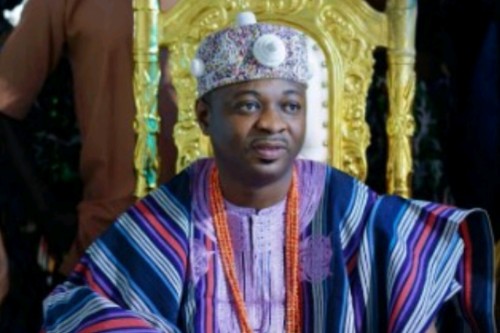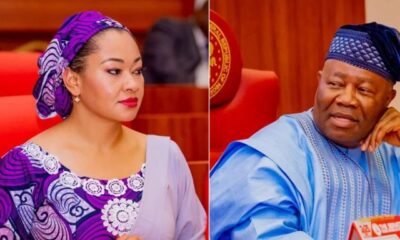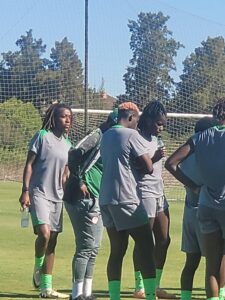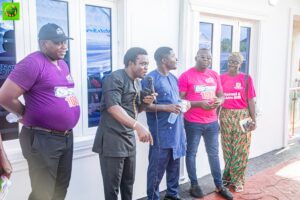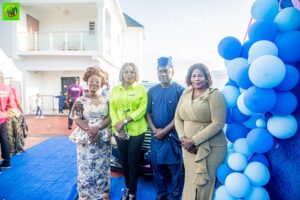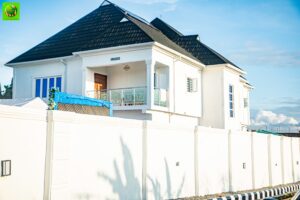Oba Sulaimon Bamgbade, the Olofin of Isheri and Adimula of Awori Kingdom, on Thursday said the Aworis were the first settlers in Lagos.
Bamgbade urged the Oba of Benin, Oba Ewuare II, to retrace the origin of the Benin Kingdom to Ile Ife, like the Aworis have always done.
This is coming in response to a recent comment by Oba Ewuare II, who traced the origin of Lagos to the Benis.
The monarch’s comment has elicited opposition from a prominent Awori monarch, the Olota of Ota, Oba Adeyemi Obalanlege; some academics and a Lagos chief, among others.
Oba Ewuare II sparked controversy among Nigerians especially on social media during a visit to the Lagos State Governor, Babajide Sanwo-Olu, on Sunday, when the king said the Binis founded Lagos.
“It is in the history books that the Binis founded Lagos. When some people will hear it now, they will go haywire; what is the Oba saying there again? But it is true. Go and check the records. Maybe not all over Lagos as we know it now but certain areas in Lagos, maybe the nucleus of Lagos, were founded by my ancestors. The Oba of Lagos will say so,” Oba Ewuare said.
But reacting to the comment in a statement on Thursday, the Olofin said contrary to Oba Ewuare’s claim, Lagos was founded and established by Olofin Ogunfuminire, the progenitor of the Awori people.
He said, “Olofin Ogunfuminire left Ile-Ife to settle at Isheri before migrating with his wife, Ajaiye, to present-day Iddo in the heart of Lagos. It was at Iddo that Ajaiye was blessed with the fruits of the womb. Her offspring are the Idejo who are the actual traditional landowners of Lagos.
“The spatial region of the land owned by the Idejo spans from Lagos Mainland (Iddo) to Lagos Island and up to Eti-Osa which he allocated absolutely to his children and other descendants.
“In this regard, he assigned Iru to the Oniru, Ikate to the Elegushi, Lagos Island to Aromire, Iganmu to Ojora, Otto, and mainland to the Oloto (up to Odo–Iya Alaro). Isheri was the dispersal point where other Olofin Ogunfunminire descendants left to found other Awori towns. For instance, Akeredun left Isheri to establish Igbesa, Odoyi left Isheri to find Agboyi, Osolo and Eleidi Atalabi left Isheri to find Ota.
“These facts are firmly established and supported by extant literature written by foreign authors and researchers such as Kristin Mann who in his book titled ‘Slavery and Birth of an African City: Lagos 1760- 1900,” wrote and I quote: ‘Migrant fishing people first settled in Lagos and from the beginning water and canoes had a prominent role in the lives of its inhabitants. Prior to the sixteenth century, Aworis, the southernmost of the Yoruba-speaking people, dispersed from Isheri, a village twelve miles up the Ogun River. A group of them settled at what is now Ebute Metta, on the mainland.
“Until the need for greater security drove the community to a smaller island in the lagoon opposite Lagos Island. There, they established two settlements, Otto and Iddo, and soon attracted fresh immigrants. In time, people from Iddo moved to the northwestern corner of the larger Island opposite, which eventually became known as Lagos, looking for land to farm.
“The settlers recognised the paramount ruler called the Olofin, based in the more populous community of Iddo but tracing mythical descent from Isheri and via the founder of that village to Ile-ife, the cradle of Yoruba civilisation.”
Olofin added, “The Benin who later came to Lagos as mere traders met Olofin and his descendants on the island of Iddo and its neighbourhood where they, Benin settled down and were well received and hosted by the community. As time went by, a feud broke out between the Benin and their hosts. Facing imminent defeat, they called for reinforcements and assistance from the Oba of Benin.
“Olofin Ogunfunminire and his mentees vehemently and successfully repelled these attacks. As a compromise, and as part of the tolerant disposition which is the character of the typical Awori, the Benins were eventually relocated to live with Aromire on his pepper farm on Lagos Island at Iga Idungaran (Idungaran in Awori means pepper farm) where they after a while and probably due to the indifference of the original land owner, introduced a more structured organisation.
“The first settlers in present Lagos are Aworis and the dispersal point of Aworis is Isheri. As the Olofin of Isheri and Adimula of Awori Kingdoms, I implore The Oba of Benin to retrace the origin of the Benin Kingdom to Ile Ife, like the Aworis have always done.”

 BIG STORY4 days ago
BIG STORY4 days ago
 BIG STORY5 days ago
BIG STORY5 days ago
 BIG STORY3 days ago
BIG STORY3 days ago
 BIG STORY4 days ago
BIG STORY4 days ago
 BIG STORY5 days ago
BIG STORY5 days ago
 BIG STORY3 days ago
BIG STORY3 days ago
 BIG STORY5 days ago
BIG STORY5 days ago
 BIG STORY5 days ago
BIG STORY5 days ago




